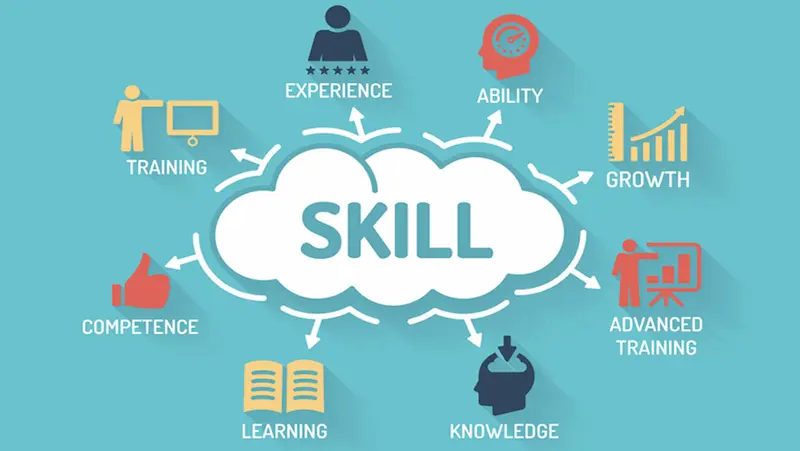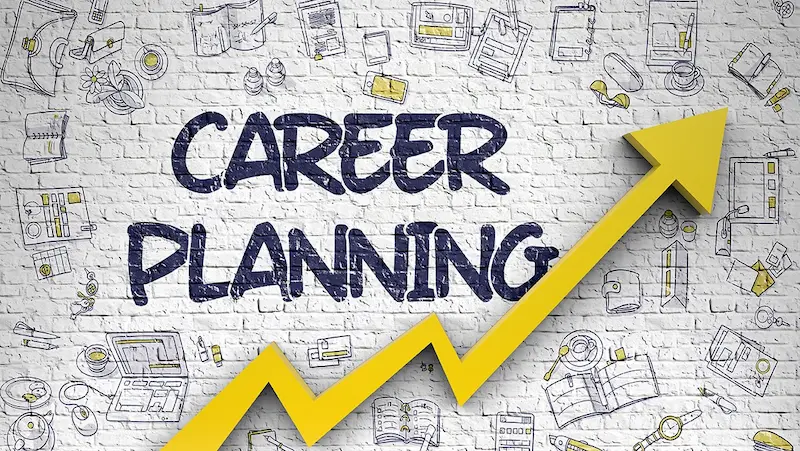In the journey of life, our careers play a pivotal role, shaping not only our financial well-being but also our overall sense of purpose and fulfillment. Career planning, often underestimated, is like a roadmap that guides us toward our professional aspirations. It’s about more than just landing a job; it’s about finding the path that aligns with our passions, skills, and ambitions.
In this fast-paced world, the importance of career planning cannot be overstated. It empowers us to make informed decisions, seize opportunities, and ultimately, lead a life that’s not just lived, but well-lived. So, let’s delve into why career curriculum planning matters and how it can pave the way for a brighter future.
Table of contents
Self-Assessment

Discovering Your Passions
1. Identifying Your Interests
In the journey of self-discovery, one of the most exhilarating quests is to uncover your passions. Passions are the driving forces that fill your life with enthusiasm and purpose. They can be found in the simplest of things – from hobbies and pastimes to the tasks that make you lose track of time. Start by reflecting on what truly excites you. What activities make you feel alive and engaged? Pay attention to those moments when you feel a genuine sense of joy or fulfillment.
2. Aligning Passions with Career Goals
Once you’ve identified your interests, it’s time to explore how they can align with your career goals. Consider how your passions can be integrated into your professional life. This doesn’t necessarily mean quitting your job and pursuing your hobby full-time (although that’s an option for some). Instead, think about how your passions can complement your current career or guide you toward a new one. Finding a job that resonates with your passions can transform work into something you genuinely enjoy.
Evaluating Your Strengths and Weaknesses
1. Skills and Talents Inventory
Knowing your strengths and talents is essential for personal and professional growth. Take stock of your skills, both hard and soft, by listing them out. Are you a master at problem-solving, a whiz with numbers, or an excellent communicator? It’s equally important to recognize your soft skills, like adaptability, teamwork, and leadership. Your skills inventory can serve as a foundation for making informed decisions about your career path.
2. Addressing Skill Gaps
Identifying your weaknesses is not a sign of failure; it’s an opportunity for improvement. Nobody is perfect, and we all have areas where we can enhance our abilities. Once you’ve pinpointed your weaknesses, take proactive steps to address them. Consider enrolling in courses, seeking mentorship, or finding resources that can help you bridge the skill gaps. Addressing these gaps will not only boost your confidence but also open up new doors for personal and professional development.
Researching Career Options
When it comes to finding your dream career, a little research can go a long way. Whether you’re a recent graduate or considering a mid-career change, taking the time to explore your options is a crucial first step. In this blog post, we’ll walk you through the process of researching career options, from industry insights to educational requirements.

Exploring Different Career Paths
1. Industry Research
Before you dive headfirst into a career, it’s essential to understand the industry you’re interested in. Start by researching trends, job demands, and salary expectations. Websites like the Bureau of Labor Statistics and industry-specific publications can provide valuable insights. Join online forums or social media groups related to your field to stay updated and connect with professionals who can offer guidance.
2. Networking and Informational Interviews
Networking isn’t just a buzzword; it’s a powerful tool for career growth exploration. Attend industry events, job fairs, and webinars to expand your professional circle. Reach out to people working in roles you’re interested in and request informational interviews. These casual conversations can provide firsthand knowledge about day-to-day responsibilities and the skills needed in a particular job.
Considering Educational Requirements
1. Degrees and Certifications
Once you’ve narrowed down your career options, consider the educational requirements. Do most positions in your chosen field require a specific degree or certification? Some careers demand advanced degrees, while others value hands-on experience and industry certifications. Make a list of the qualifications needed for your target role and plan your education accordingly.
2. Online vs. Traditional Education
The mode of education you choose can also impact your career path. Traditional brick-and-mortar institutions offer a structured learning environment with in-person interactions. On the other hand, online education provides flexibility and accessibility. Consider your personal learning strategies style, lifestyle, and budget when deciding between the two. Many universities now offer online programs, making it easier to strike a balance.
Building a Career Roadmap

Creating a Personalized Career Plan
1. Mapping Out Milestones
Think of your career as a grand adventure. Just as you wouldn’t embark on a road trip without a map, you shouldn’t venture into your career without a plan. Start by defining clear milestones. Where do you want to be in 1 year, 5 years, or even a decade from now? Break these aspirations down into smaller, achievable goals. This gives you a clear path forward and something to strive for.
2. Flexibility in Planning
While having a plan is essential, remember that life often throws curveballs. Be open to flexibility. Your journey might not unfold exactly as expected, and that’s okay. Embrace opportunities that come your way, even if they deviate from your initial plan. Sometimes, the detours lead to the most beautiful destinations.
Tracking Progress
1. Regular Check-Ins
It’s easy to get caught up in the daily grind and lose sight of your long-term goals. That’s why regular check-ins with yourself are crucial. Set aside time periodically to reflect on your progress.
2. Adjusting the Plan as Needed
Remember, your career plan is not set in stone. It’s a dynamic tool that should evolve with you. If you find yourself consistently veering off course, it might be time to revise your goals or explore new opportunities. Don’t be afraid to pivot if it aligns better with your passions and strengths.
Skill Development

Identifying Relevant Skills
1. Hard and Soft Skills:
In today’s job market, it’s not just about what you know but also how you apply it. Hard skills, like coding or data analysis, are specific, measurable abilities. Soft skills, on the other hand, encompass interpersonal abilities like communication and teamwork. To identify your skills, take stock of both your hard and soft skills. What are you good at, and what areas could use improvement?
2. Skill Gaps Analysis:
Once you’ve identified your skills, it’s time to perform a skill gaps analysis. This involves comparing your current skill set with the requirements of your desired job or career path. Identifying the gaps between where you are and where you want to be will help you set clear goals for skill development.
Continuous Learning
In today’s ever-evolving job market, continuous learning experience is not just a buzzword; it’s a necessity. Here are some strategies to help you keep your skills sharp and up-to-date:
Online Courses and Workshops:
The internet has revolutionized the way we learn. There is a wealth of online courses and workshops available on platforms like Coursera, edX, and LinkedIn Learning resources. These courses cover a wide range of topics and can help you acquire new skills or enhance existing ones, all from the comfort of your home.
Mentoring and Skill Building:
Don’t underestimate the power of mentorship. Connecting with experienced professionals in your field can provide valuable insights and guidance. Seek out mentors who can help you develop both hard and soft skills. Engage in discussions, attend networking events, and consider joining professional organizations to access mentorship opportunities.
Resume and Personal Branding

Tailoring Your Resume
When it comes to job hunting, your resume is your passport to the professional world. But what makes a resume truly effective? The key lies in tailoring it to suit the specific job you’re applying for. Gone are the days of the one-size-fits-all approach; today, personalization is key.
1. Customize, Customize, Customize:
It’s tempting to send the same generic resume to every job posting but resist that urge. Instead, carefully read the job description and requirements. Highlight the skills and experiences that match those listed. By doing this, you’re not just telling employers that you want the job; you’re showing them that you’re a perfect fit for it.
2. Show, Don’t Tell:
Don’t just list your job responsibilities; emphasize your achievements. Employers want to know how you added value to your previous roles. Use specific numbers and examples to showcase your impact. Did you increase sales by 30%? Did you lead a successful project that saved the company time and money? Highlight these achievements to stand out.
Online Presence
In today’s digital age, your online presence matters just as much as your resume, if not more. It’s not just about what you put on paper; it’s also about how you present yourself in the virtual world.
1. LinkedIn Profile Optimization:
LinkedIn is the go-to platform for professional networking. Make sure your profile is up-to-date and reflects your current skills and experiences. Use a professional photo, write a compelling summary, and showcase your achievements. Connect with industry professionals and join relevant groups to expand your network.
2. Blogging and Online Portfolio:
If you want to go the extra mile, consider starting a blog or creating an online portfolio. Share your expertise, insights, and experiences in your field. This not only demonstrates your knowledge but also your passion for what you do. It’s a powerful way to establish yourself as an industry thought leader and catch the eye of potential employers.
Overcoming Career Challenges

Handling Setbacks
1. Dealing with Rejections
Rejections are a part of life, and they sting. Whether it’s a job application, a business proposal, or a personal relationship, rejection can feel like a punch in the gut. It’s okay to feel disappointed, but remember that rejection doesn’t define your worth. Take a moment to process your feelings, then focus on what you can learn from the experience. Use rejection as a stepping stone to improvement, not as a roadblock.
2. Bouncing Back from Failures
Failure is a word that often carries a heavy burden. But, think of it this way: failure is just a stepping stone to success. When you stumble, it’s an opportunity to learn, grow, and evolve. Don’t be afraid to fail; be afraid of not trying. Embrace your failures, analyze what went wrong, adjust your approach, and get back in the game with renewed determination.
Adapting to Industry Changes
1. Staying Current and Adaptable
The business world is constantly evolving, and those who adapt thrive. Staying current means keeping your skills, knowledge, and strategies up to date. Make continuous learning positive habits. Attend workshops, read industry news, and network with peers. The more adaptable you become, the better equipped you’ll be to handle any changes that come your way.
2. Embracing Innovation
Innovation isn’t just a buzzword; it’s a necessity in today’s fast-paced world. Whether you’re an entrepreneur or an employee, embracing innovation can set you apart. Be open to new ideas, technology, and processes. Don’t be afraid to challenge the status quo. Innovation often leads to creative solutions and new opportunities.
Conclusion
In closing, remember that your career journey is a path uniquely your own, filled with ups and downs. Embrace every challenge as an opportunity to grow, and never underestimate the power of encouragement, both from within and from those around you. Stay resilient, stay passionate, and keep moving forward. Your dreams are worth every step you take, and your potential knows no bounds. So, go on, chase your aspirations, and let encouragement be your steadfast companion on this remarkable journey.
To get your hands on more such articles, educational content, and free resources on coding for kids, robotics courses, game development, etc., check out the BrightCHAMPS Blog Page now!
Frequently Asked Questions
A1: Career planning is like plotting a road map for your professional journey. It involves setting goals, identifying your strengths, and making strategic choices to reach your dream job.
A2: Career planning helps you stay focused, make informed decisions, and ensure you’re on the right path toward a fulfilling and successful career.
A3: Begin by assessing your skills and interests, then set clear goals and create a plan to acquire the necessary qualifications and experience.
A4: No, it’s an ongoing process. Regularly review your goals, adapt to changes, and continue learning to stay on track.
A5: Absolutely! Career planning can lead to more job satisfaction, better opportunities, and a brighter future if you put in the effort and stay committed.


 We are an army of educators and passionate learners from BrightChamps family, committed to providing free learning resources to kids, parents & students.
We are an army of educators and passionate learners from BrightChamps family, committed to providing free learning resources to kids, parents & students.








